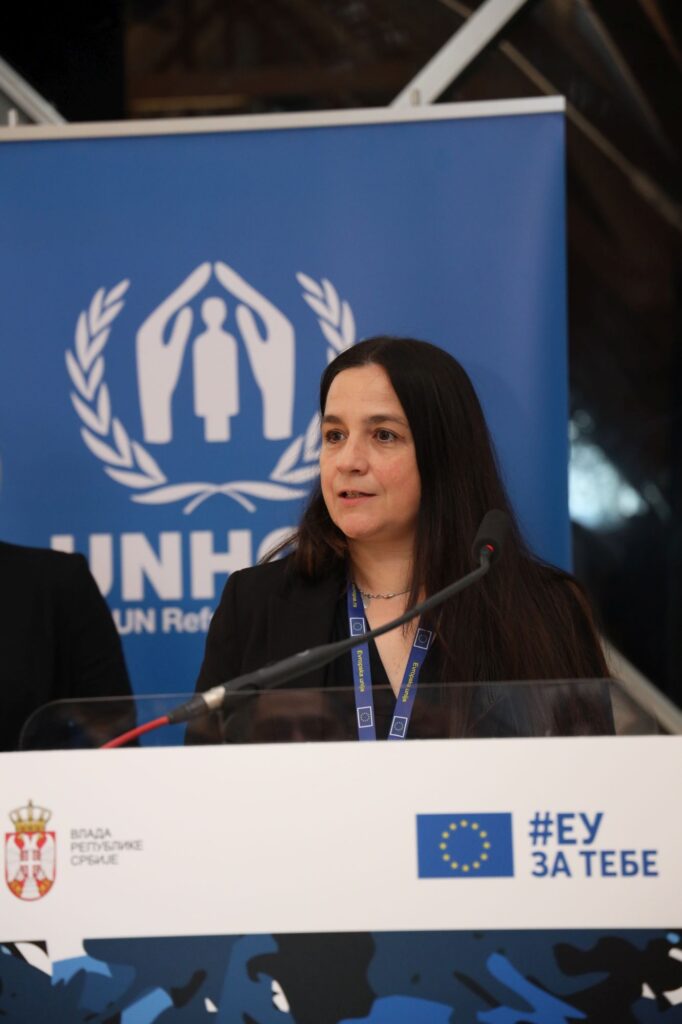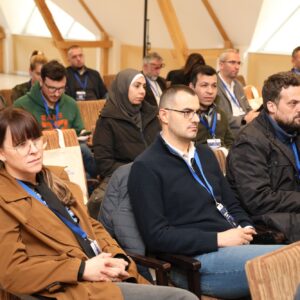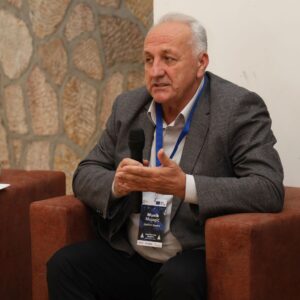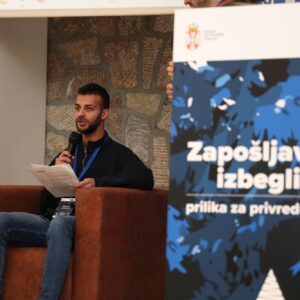The conference “Employment of Refugees – An Opportunity for the Economy of Sjenica”, was held today in the organization of UNHCR, the UN Refugee Agency
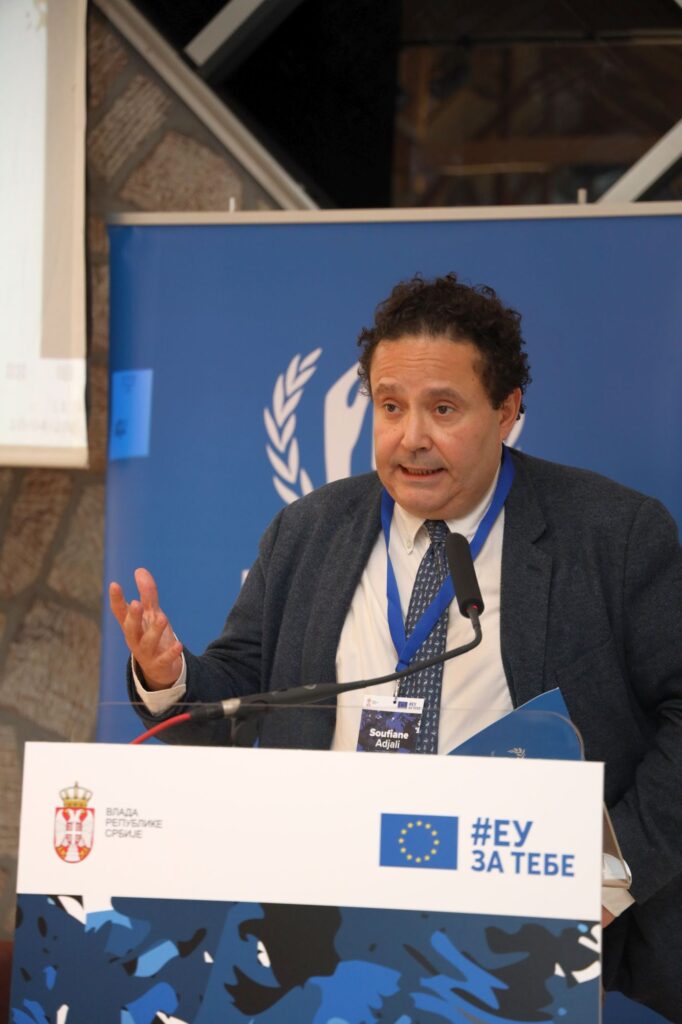
The event brought together representatives of national and local businesses, Serbian Commissariat for Refugees and Migration, the EU Delegation in Serbia, as well as the other actors, to explore ways to support refugees and asylum seekers, while unlocking economic potential for Sjenica and its surrounding areas.
As Soufiane Adjali, UNHCR Representative in Serbia, said during today’s discussion, following significant amendments to the Law on Employment of Foreigners as of 1 February 2024, employing refugees and asylum seekers in Serbia has become more straightforward.
“Asylum seekers and people who have been granted asylum now no longer require work permits, nor do they face heavy taxes or administrative procedures. Refugees can be employed using their ID cards while asylum seekers need only to present proof that they have lodged an asylum application at least six months before applying for a job”, Adjali said.
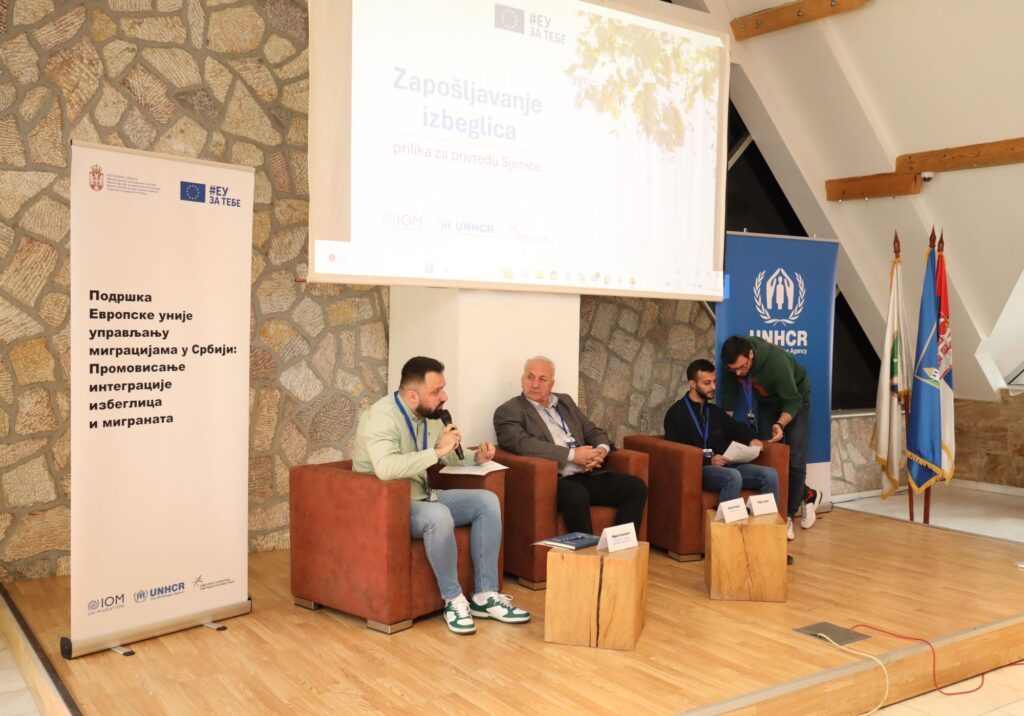
According to the estimates of relevant government institutions, close to 1,300 refugees have received protection in Serbia so far, contributing actively to local communities. These individuals come from diverse backgrounds, such as Ukraine, Afghanistan, Syria, Iran, Burundi and Cuba, bringing different skills, knowledge and perspectives to the workforce.
The Municipality of Sjenica, with support from state institutions such as the Commissariat for Refugees and Migration, has shown an inspiring commitment to welcoming and supporting refugees.
Two years ago, UNHCR and IKEA Serbia launched the “For Refugees” network, bringing together representatives of the private sector to support refugee integration and improve their living conditions in Serbia. Thirteen companies and bilateral chambers of commerce have so far joined the network, which is open to supporting refugees.
“At IKEA, we believe that the employment and social integration of refugees are of exceptional importance. Employment plays a key role in empowering them and helping them integrate into a new environment, as it enables active contribution to the community and the creation of a better everyday life for everyone. The private sector, through proactiveness and engagement, has an important role in creating safer living conditions for refugees, while simultaneously strengthening the local community and economy. New experiences, skills, and perspectives enrich the work environment and stimulate economic growth. Supporting the integration of refugees is beneficial in many ways – both for the business sector and society as a whole,” emphasized Natalija Pavlović, Acting Manager of the People & Culture Team at IKEA Serbia.
UNHCR hopes that today’s event marks the first step toward creating a welcoming environment where asylum seekers and refugees feel empowered to contribute to the economic prosperity of Sjenica, as well as Novi Pazar and surrounding areas. UNHCR and its partners remain dedicated to fostering partnerships between refugees and the private sector to ensure a more stable future for everyone.
